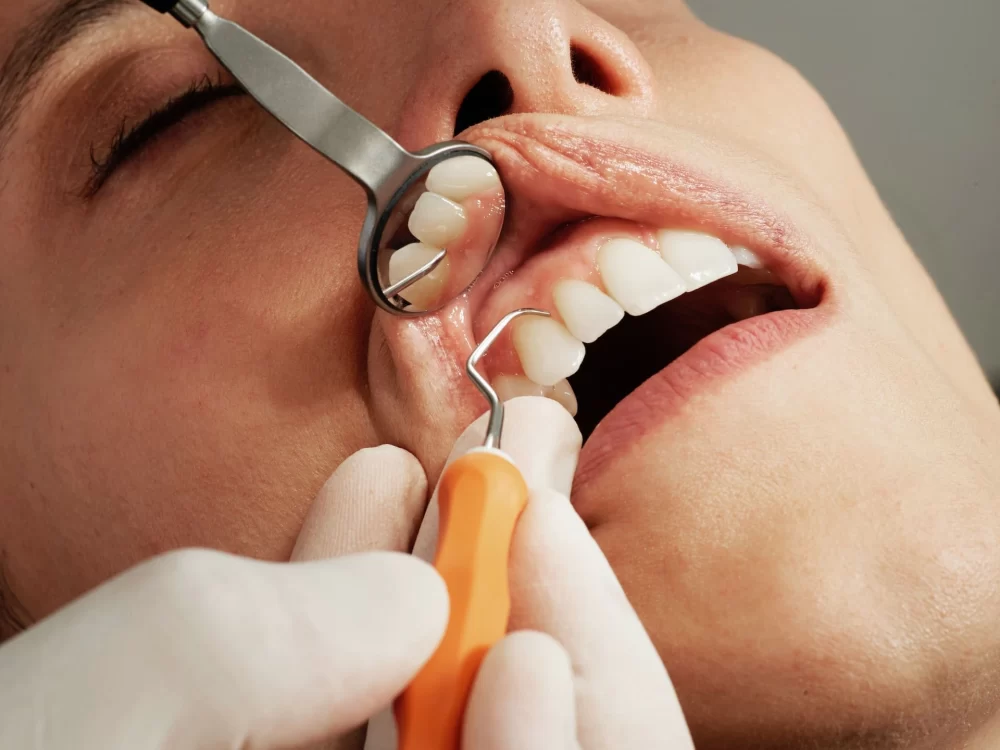
Best Practices for Tooth Care After Getting Dental Implants
- 1. Understanding Dental Implants
- 2. Initial Care After Getting Dental Implants
- 3. Long-Term Maintenance for Dental Implants
- 4. Common Mistakes to Avoid After Dental Implants
- 5. Real-Life Case: Success and Setbacks in Dental Implant Care
- 6. Next Steps: Learn More and Protect Your Dental Implants
1. Understanding Dental Implants
Dental implants are a revolutionary solution for replacing missing teeth, offering durability and a natural look. An implant is a titanium post inserted into the jawbone to act as a replacement root for a missing tooth. Once the bone fuses with the implant in a process called osseointegration, a crown, bridge, or denture is placed on top to restore function and aesthetics. This procedure is highly effective and long-lasting when proper aftercare is followed.
2. Initial Care After Getting Dental Implants
After getting dental implants, proper care is essential to ensure the success of the procedure. The first few days are critical in preventing infection and ensuring proper healing. Here are some key initial care tips:
- Follow your dentist's instructions: Your dentist will provide specific post-operative care instructions, such as when to take prescribed medications, what foods to avoid, and when to return for follow-up appointments.
- Manage pain and swelling: It's common to experience some discomfort and swelling after the procedure. Using prescribed pain relievers, applying ice packs, and keeping your head elevated can help alleviate these symptoms.
- Eat soft foods: For the first few days, stick to a diet of soft foods that don’t require much chewing. Avoid hard, crunchy, or sticky foods that can irritate the implant site.
- Keep the area clean: Gentle cleaning of the implant site is crucial. Use a soft toothbrush and avoid vigorous rinsing to prevent disturbing the implant while it heals.
3. Long-Term Maintenance for Dental Implants
Once your dental implants have fully integrated into your jawbone, it’s important to continue caring for them to ensure their long-term success. Here are some best practices for maintaining your dental implants:
- Maintain a good oral hygiene routine: Brush your implants twice a day with a non-abrasive toothpaste and floss daily to prevent plaque buildup and gum disease around the implant.
- Use an antimicrobial mouthwash: Rinsing with an antimicrobial mouthwash can help reduce the risk of infection and promote healthy gum tissue around your implant.
- Schedule regular dental check-ups: Regular visits to the dentist are essential for monitoring the health of your implants and surrounding tissues. Your dentist will ensure that the implant is functioning properly and that the gums are healthy.
- Avoid bad habits: Habits such as grinding or clenching your teeth, smoking, or chewing on hard objects can put extra stress on your implants and increase the risk of complications.
4. Common Mistakes to Avoid After Dental Implants
While caring for dental implants is relatively straightforward, there are some common mistakes that can jeopardize the success of the procedure. Be sure to avoid the following:
- Skipping follow-up visits: Failing to attend follow-up appointments can delay the detection of any issues with your implant and increase the risk of complications.
- Not maintaining oral hygiene: Neglecting to properly care for your implants can lead to infection, gum disease, and implant failure.
- Consuming harmful substances: Smoking, excessive alcohol consumption, and using drugs can negatively affect the healing process and the longevity of your dental implants.
5. Real-Life Case: Success and Setbacks in Dental Implant Care
Let’s look at the story of Emily, who had two dental implants placed to replace missing teeth. At first, she followed her dentist’s post-op instructions diligently, eating soft foods and maintaining excellent oral hygiene. However, after a few months, she noticed that one of her implants felt loose. Upon visiting her dentist, it was revealed that she had neglected to floss around the implant site, which led to gum inflammation. Fortunately, with treatment, the issue was resolved, and Emily’s implant remained intact. This case emphasizes the importance of consistency in long-term care and regular dental check-ups.
6. Next Steps: Learn More and Protect Your Dental Implants
Taking the right steps to care for your dental implants can ensure they last for years to come. By following the best practices for dental implant care and avoiding common mistakes, you can protect your investment in a healthy, beautiful smile. For more information on maintaining your dental implants or to schedule a consultation, visit Dentistry Toothtruth today.







 Nashua Dentistry and Orthodontics for Children4.0 (370 review)
Nashua Dentistry and Orthodontics for Children4.0 (370 review) Community Dental Care - St. Paul3.0 (105 review)
Community Dental Care - St. Paul3.0 (105 review) North Scottsdale Dental4.0 (211 review)
North Scottsdale Dental4.0 (211 review) Premiere Dental of West Deptford4.0 (352 review)
Premiere Dental of West Deptford4.0 (352 review) Corona Hills Modern Dentistry and Orthodontics4.0 (137 review)
Corona Hills Modern Dentistry and Orthodontics4.0 (137 review) Light Dental Studios of University Place4.0 (279 review)
Light Dental Studios of University Place4.0 (279 review) The Importance of Oral Health Education During Pregnancy for a Healthy Pregnancy
The Importance of Oral Health Education During Pregnancy for a Healthy Pregnancy Best Tips for Brushing Your Teeth Properly for Healthy Gums: Essential Techniques for Oral Health
Best Tips for Brushing Your Teeth Properly for Healthy Gums: Essential Techniques for Oral Health Why Skipping Dental Checkups Can Lead to Bigger Oral Health Problems
Why Skipping Dental Checkups Can Lead to Bigger Oral Health Problems Advantages of Porcelain Dental Restorations
Advantages of Porcelain Dental Restorations How Can Diabetes Cause Tooth and Gum Problems? Preventing and Managing Oral Health Issues
How Can Diabetes Cause Tooth and Gum Problems? Preventing and Managing Oral Health Issues Healthy Habits for Promoting Good Oral Health and Hygiene: Tips for a Healthy Smile
Healthy Habits for Promoting Good Oral Health and Hygiene: Tips for a Healthy Smile